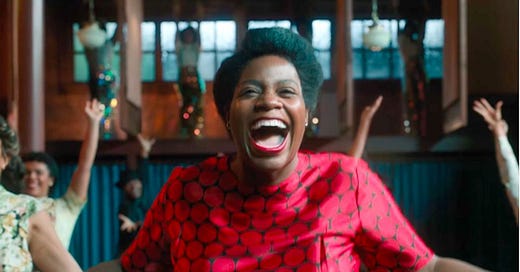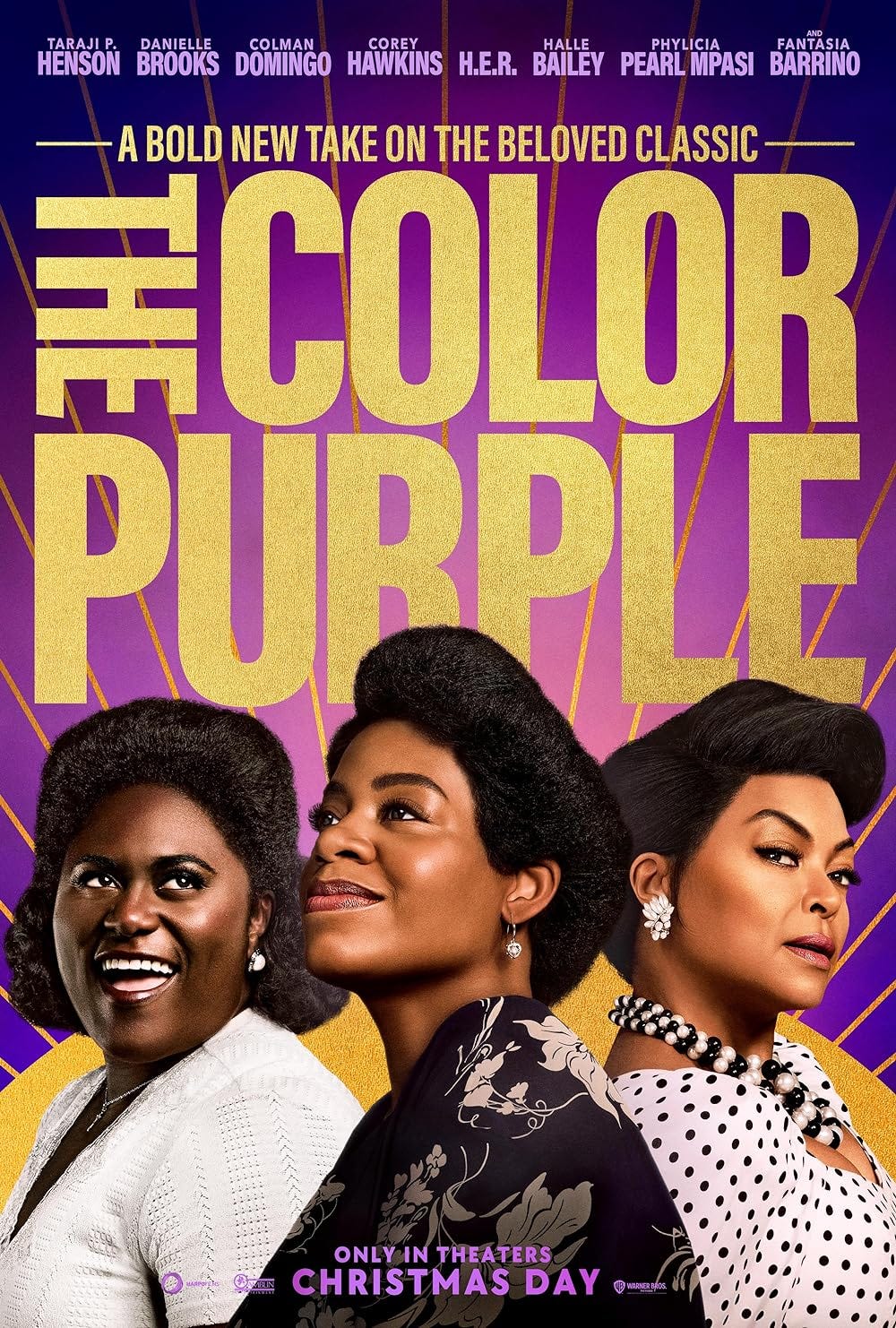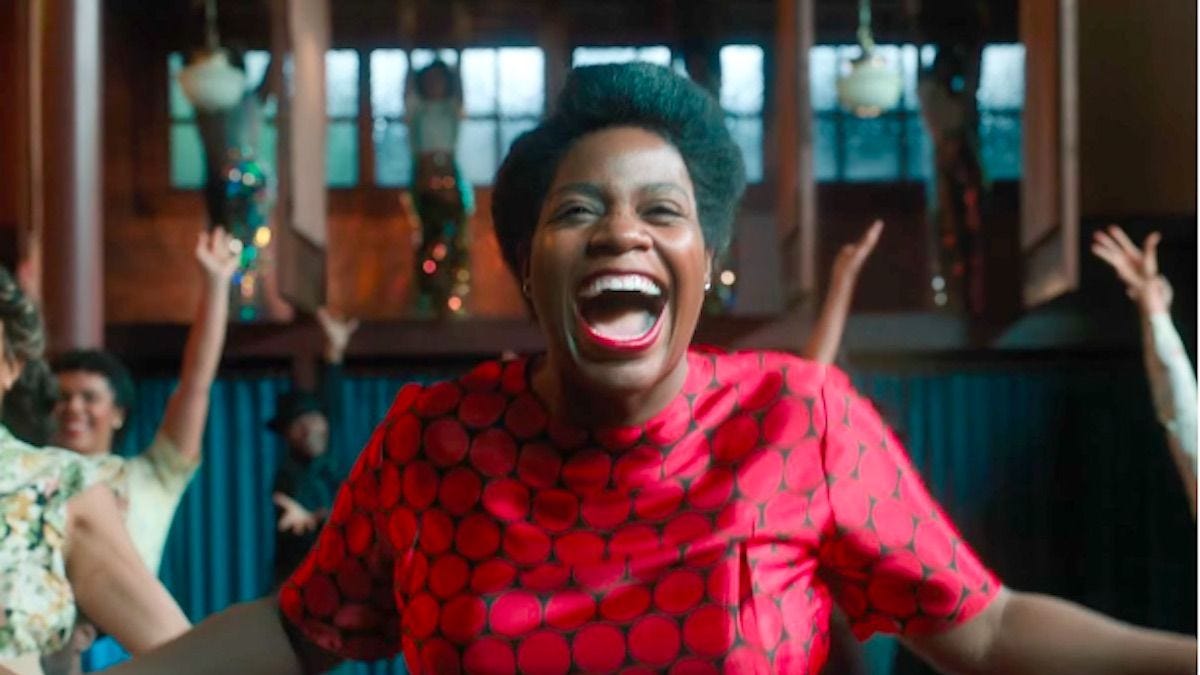I didn’t realize that “The Color Purple” had been adapted into a musical until word of the film adaptation of that movie was announced. However, the popularity of Alice Walker’s novel and the 1985 Stephen Spielberg movie seem to make that somewhat inevitable. Still, I was looking forward to another trip with Celie and Shug in Blitz Bazawule’s most recent adaptation of “The Color Purple.”
Young Celie (Phylicia Pearl Mpasi) and Nettie (Halle Bailey) are sisters living with their father, Alfonso (Deon Cole), who has twice impregnated Celie. She is giving up her second child when Mister (Colman Domingo) comes asking to marry Nettie. Alfonso refuses Nettie but says that he can marry Celie and that even though she’s ugly, she can work hard. Mister agrees and takes Celie to his home, where Nettie soon joins when their father tries to rape her as well. When Nettie refuses Mister’s advances, he throws her out and promises that the sisters will never see one another again. Now an adult, Celie (Fantasia Barrino) endures regular beatings from Mister, with her only relief coming from her friendship with Sofia (Danielle Brooks) and her fascination with the electric Shug Avery (Taraji P. Henson).
As one can see from the synopsis, this is a difficult film to watch, though the musical elements soften the edges of the tragedy while still allowing Celie’s pain and resilience to shine through. And they do shine through. From the early moments when Celie hands her son over to her father, not knowing where he will be taken or if he is even alive, the story shows a woman who clings to hope in the most impossible of circumstances.
The film is stacked with spectacular performances. Domingo is having an impressive year with both this and “Rustin,” showing his impressive range. Barrino gives a beautiful performance as Celie, inviting us into her story with a reserved strength. Brooks electrifies the screen whenever she is on, and Henson is an absolute delight as Shug.
The music and the dancing bring a whole different element to the story. Relying heavily on the music of Black Americans, particularly gospel and blues, it ties this film to the Black experience in a way that was missing in the 1985 version. From the opening up-tempo Black church song to the quiet reflection in the final piece, we immerse ourselves in the Black experience.
In one scene, Celie advises her son to beat his wife to get her to stay in line. That pain and humiliation is all that she has known, and she passes that on to another woman. The author, Alice Walker, has given us a beautiful story about remembering people’s humanity. Still, she has engaged in anti-Semitic and transphobic language, proving that you can see some flaws in the system while upholding others. The greatest gift that this film gives us is the reminder that it is never too late to make right what we made wrong.
This review originally appeared in The Dominion Post on December 31, 2023.






